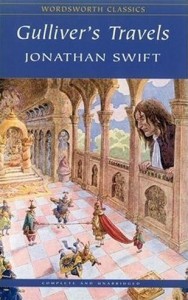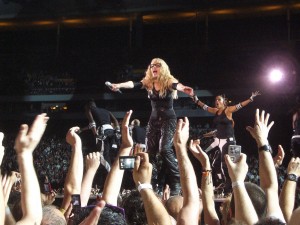And stop messing around.
Procrastination from ism studios on Vimeo.
And stop messing around.
Procrastination from ism studios on Vimeo.

I always say I’m more into the classics, but I could be more precise. Most of my readings come from a relatively short stretch of about seventy years, from the last third of the 19th century until the mid-20th. I rarely venture further back in time, out of fear to feel overcome by the socio-cultural -or merely linguistic- distance. Thus, for example, I loved Shakespeare when I read him in college, but I indefinitely procastrinate reading more of his plays. The oldest thing I’ve ever read must have been “Lysistrata“, which felt a little slow but still makes me laugh every time I remember some lines from its chastity oath:
I’ll never lie and stare up at the ceiling,
Nor like a lion on all fours go kneeling.from the Gutenberg Project edition
One of my favourite bloggers wrote recently:
I don’t think reading classics is so important. After all, if they were read in their time is because they knew no better. I read for fun. I don’t read to cultivate myself, or to become a better person, or to have conversation topics at hipster gatherings. I read for fun. That means my choice of reading material is determined by one basic factor -that they entertain me.
Well let me entertain you all with my disagreeing thoughts. Firstly, not everything that was read in the past has reached us today. Probably loads of lesser texts (or then-considered lesser) got lost along the way by lack of interest and -therefore- copies. Even with a bit of bad luck we might have lost some of the best ones, due to their audacity or rebeliousness, in bonfires across the centuries, be it in the depths of a medieval monastery, during witch hunts or at a nazi demonstration. Following our example, less than a fourth of the plays by Aristophanes survive today. The classics that we have are not all that there was. It’s just all that we have.
Secondly, I also disagree because classics can be entertaining in many ways. They come from differents times and cultures, so dumping them all in the same basket can be quite a mistake. I find most classics amusing for some reason or other. Sometimes you discover how old is a certain idea (a character in “The Clouds” already offends somebody else by showing him the finger, over 400 years before Christ), or how early a cliché was born that we still see as modern nowadays, from criticism to the monarchy to vampire myths. In other ocassions one discovers the meaning that certain words used to have and, by seeing them used in a different context, one can deduce how they came to evolve into their modern meaning. Quite often, in general, one can see how people lived in former times, as if you were watching a transdimensional edition of “Big Brother“.
 Aditionally, as writers, we owe a certain commitment to the literary tradition. For example, the novel that I’m working on describes a whole new universe, so for “documentation” purposes I enlarged my queue of readings with titles such as “Alice in Wonderland” or “Gulliver’s Travels”. The latter felt a little imposing because it was published as early as 1726 and I feared it wouldn’t have much to tell me. I’m finally reading it these days, and I have to say I’m impressed at the wide range of topics it touches upon. I happen to have a near-completed play whose characters have different sizes (imagine an Andalusian “Honey, I shrunk the kids“) and I have no joke in it that Jonathan Swift hasn’t already covered in his “travels” to Lilliput and Brobdingang. Moreover, his criticism of Western forms of government is just as valid today as it was almost three centuries ago.
Aditionally, as writers, we owe a certain commitment to the literary tradition. For example, the novel that I’m working on describes a whole new universe, so for “documentation” purposes I enlarged my queue of readings with titles such as “Alice in Wonderland” or “Gulliver’s Travels”. The latter felt a little imposing because it was published as early as 1726 and I feared it wouldn’t have much to tell me. I’m finally reading it these days, and I have to say I’m impressed at the wide range of topics it touches upon. I happen to have a near-completed play whose characters have different sizes (imagine an Andalusian “Honey, I shrunk the kids“) and I have no joke in it that Jonathan Swift hasn’t already covered in his “travels” to Lilliput and Brobdingang. Moreover, his criticism of Western forms of government is just as valid today as it was almost three centuries ago.
In a word, I plan to widen my range of readings, which I hope will widen both my understanding of the world and the number of ways in which literature can amuse me. Are you willing to give it a try?

I said it yesterday: everybody thinks they can write. Those who can move a camera. Those who can hold a pencil. Those woh can direct their actors. Those who can program a computer. If they can do all those complex technical things, what else do they need to write a movie, a comic, a play, a game? As Brenda Ueland used to say, everybody hsa something to tell!
I’ll admit that there are many creators who are capable of doing all that and writing their own stories. We can all think up names of movie directors and comic authors so I won’t make a list. The problem is that everybody wants to be one of those auteurs… which is another reason why there are so many mediocre pieces out there. If you intend to write for an audio-visual format, that’s one of the challenges you’ll have to face: the disdain of some “professionals” in the sector who’ll think that writing may as well get done by monkeys.
This topic, among many others, came up in conversation with our first guest ever, a renowned Spanish comic author whose words will cover these pages in the next few days.
But with this we’re already going away from the topic of videogames, back into the general themes of this multi-faceted blog. I hope this light introduction to the issue captured your interest, as we’ll find more chances to delve deeper into its complexities. In the next few days we’ll catch up with news that have been popping up on the interwebs in the last few days and then we’ll pass the mike to our first interviewee. Stay tuned!

If I want to make games, what do I have to do?
Just as if you want to work on any other activity, there’s only one way: become a professional. That means you’ll have to work hard, to study and to practice.
As the industry grows (and they already say it moves more money than movies or music), more courses pop up that address videogames especifically. I cannot recommend any in particular as I don’t have any references, but some Google searches should offer results for your area. As in any new business model, you’ll come across amateurs wanting to make easy money by lack of competition and true professionals trying to consolidate the industry. Ask for references on the faculty and study the offers throughly before handing out your money.
The problem is that in most cases, companies will not know either if the course you’ve studied is worth anything or not. So in order to prove your worth, practice will be more useful. Cancel your suscription to the popular magazine that only copypastes the distributors’ press releases (by the way, it’s most of them) and find publications with a critical eye that not only sell titles but also analyze the industry. Find the odd book on the subject and dip in. Play all kinds of genres on all available platforms and analyze those games, their merits and flaws, the twists that work, the cheap tricks, how they came to be at all.
But above all, mingle with people with the same interests and make games. The best item in your CV for a company is a finished piece of work. Illustrators don’t get assignments through the promise of their sketches: you’ll want to present full games.
What are you talking about, full games? All I know is how to write! Ah, nobody said it was easy! You’ll have to learn more. Tomorrow I’ll tell you what, and more importantly why.
I just happened upon this quote:
We’re not as clever as people think. Intelligence is letting the book open so the reader can finish it as they wish.
Colum McCann
It reminded me of one of the epigrams that form the preface to the wonderful The Picture of Dorian Gray.
It is the spectator, and not life, that art really mirrors.
Oscar Wilde
They’re not the only ones who think the reader wirtes as much as the writer.
I see the role of the writer as creating a room with big windows and leaving the reader to imagine. It’s a meeting on the page.
Kevin Crossley-Holland
Every novel is an equal collaboration between the writer and the reader and it is the only place in the world where two strangers can meet on terms of absolute intimacy.
Paul Auster
What do you think?
People often ask how long should their novel be. We’ve all faced the problem of wanting to fill up two hundred pages and having nothing to say after only didty. Contests often deman a minimum of 50.000 words. What is the right length of a novel?
Let the experts speak:
 Lewis Carroll, Alice in Wonderland – 26.700 words
Lewis Carroll, Alice in Wonderland – 26.700 wordsAs you see, both classics and recent best-sellers range in a wide variety of possible lengths. In other words: a novel is as long as it is. It will last for as long as the story requires. Asimov and Carroll were quite consisten in the length of their sequels -perhaps because they were, with all due respect, more of the same-, while for Card and Rowling the sequels grew longer as their universes expanded.
Take a look at your bookshelves: are the books thick, thin, or every size? And which are your favourites? That might be the type of novel that you’re best at writing…

We wonder too often how to find time for writing.
Quite accidentally I’ve found a nice way: when I get home after work, unless I have some other plan, I grab my laptop, play some music, pour a drink, sit at the balcony and write.
Instead of findig time for writing, I just write – and find time for everything else.
Why don’t you try it?